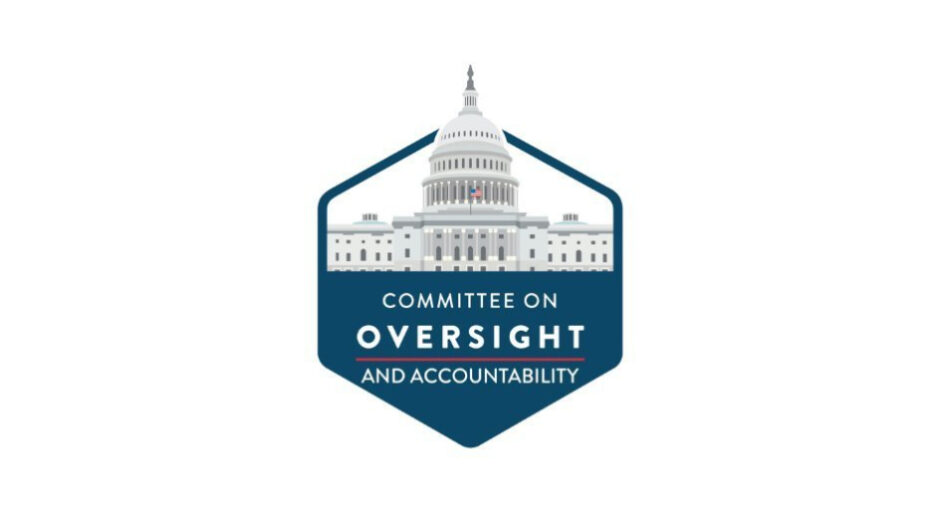The U.S. House Committee on Oversight and Accountability last week launched an investigation into how “anticompetitive tactics” by the three largest pharmacy benefit managers—Express Scripts, CVS Caremark, and OptumRx—are driving up healthcare costs and hurting patient care within federal health care programs.
Committee Chair James Comer’s (R-Ky.) March 1 announcement does not mention the 340B program. The government probe however comes amid a wave of legislation recently introduced in a number of states targeting PBM policies that discriminate against 340B covered entities and/or their contract pharmacies, such as reimbursing them at a lower rate compared with non-340B entities.
The 10-point 340B reform plan released this morning by Pharmaceutical Research and Manufacturers of America and the National Association of Community Health Centers says, “Protections are needed to prevent for-profit companies, like pharmacy benefit managers, from siphoning off 340B savings intended to help patients by reducing reimbursement for 340B-qualifying prescriptions. Additionally, fees that pharmacies and other for-profit third parties charge for 340B-related services should be limited to ensure covered entities and the patients they serve receive most of the savings associated with the program.”
Bipartisan legislation, the PROTECT 340B Act, was introduced in the House during the last session of Congress to prohibit PBMs and other third-party payers from paying 340B providers below-market rates or engaging in other perceived discriminatory contracting practices. The Protect Act would also have created a neutral clearinghouse to prevent Medicaid duplicate discount claims.
It has not been introduced in this session so far. NACHC was one of the driving forces behind that bill. Anticipated legislation to turn PhRMA and NACHC’s joint 340B agenda into law could eclipse it or it could be addressed again as stand-alone legislation.
Comer said he is seeking from the PBMs “documents, communications and information related to their practices that are distorting the pharmaceutical market and limiting high quality care for patients.”
“Federal agencies administering health care programs for seniors, active-duty military, and federal employees rely on PBMs as middlemen to set drug prices, which opens the door to government waste at the expense of American taxpayers,” Comer said in the news release
Combined, the three PBMs hold an estimated 80% share of the market, he said.
In an emailed statement yesterday, J.C. Scott, CEO of the Pharmaceutical Care Management Association (PCMA), told 340B Report, “[PBMs] have a proven track record of reducing prescription drug costs in federal programs…. While we appreciate—and share—the Committee’s concern around drug pricing and existing gaps in affordability, we strongly urge members of the committee and Congress to stay focused on real solutions that are proven to reduce prescription drug costs.”
Scott said the most effective way to cut costs is by increasing competition in the prescription drug market by curbing drug companies’ “common and egregious abuses” of the drug patent system and of their pricing power, which he said is the “root cause” of high drug prices.
In his letters to Express Scripts, CVS Caremark, and OptumRx, Comer told the companies, “PBMs engage in self-benefiting practices at multiple levels of the payment and supply chain as they retain control over drug prices, rebates, pharmacy reimbursements, insurers, pharmacy networks, and formularies.”
Comer charged that each company “appears to be continuing to leverage its size for financial gain” by engaging in practices, including:
- ‘fail first’ policies that require patients to fail on the PBM’s preferred drug before they can take the drug first prescribed, in order to get higher rebates from drug manufacturers.
- spread pricing, where PBMs pay pharmacies a lower amount than that paid to health plans including Medicare and Medicaid, and keeping the difference.
- forcing pharmacies to pay retroactive rebates and fees, including direct and indirect remuneration (DIR) fees, months or years later, shifting costs from PBMs to beneficiaries and the government.
“The focus of the pharmaceutical marketplace should be on the patient,” Comer told the PBMs.
In the letters, Comer cited specific examples of each PBM’s specific practices, such as overcharging insurance plans for prescription drugs, that have spurred lawsuits.
In Comer’s letter to Express Scripts, a subsidiary of health insurer Cigna, the lawmaker noted a lawsuit against the PBM based on overcharging a Massachusetts workers’ compensation plan, and another alleging the company manipulated Medicare star ratings to lower pharmacy scores to allow the PBM to “claw back” Medicare benefits. It also noted legal action alleging Express Scripts’ failure to honor dispensing fee guarantees and discounts, classifying generic drugs as brand drugs to charge higher rates, and overcharging for generic drugs.
The letter to CVS/Caremark cited a lawsuit based on the company’s requiring patients to fill prescriptions at CVS retail pharmacies or through Caremark mail-order, and a government suit alleging the PBM fraudulently billed Medicare and other programs for outdated prescriptions. It also cited the company’s $6 million settlement with the government for failing to reimburse Medicaid for prescription drugs.
Comer’s letter to OptumRx, a unit of insurer United Healthcare, cited the PBM’s $15 million settlement with the state of Ohio and a $5.8 million settlement with the state of Massachusetts for overcharging the states’ workers’ compensation plans, and another suit brought by the state of Louisiana for Medicaid drug overcharging.
The committee asked the companies for information including documentation on formulary design and management for commercial and for government programs, all rebates and fees paid to the PBM by year and the difference in pricing between government and commercial plans.
Comer said the committee also sent letters to the Office of Personnel Management, the Centers for Medicare & Medicaid Services, and the Defense Health Agency seeking documents and information related to PBM practices.
Comer cited a 2021 report by committee Republicans that he said showed extensive consolidation in the PBM market has hurt patient health, driven up drug prices, and created conflicts of interest that distort the market and limit high quality healthcare.


